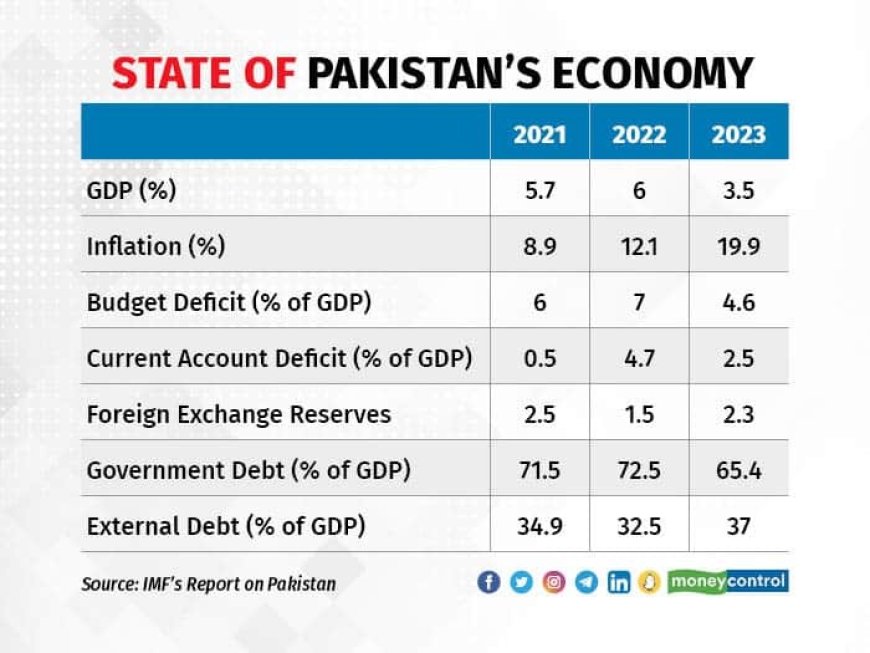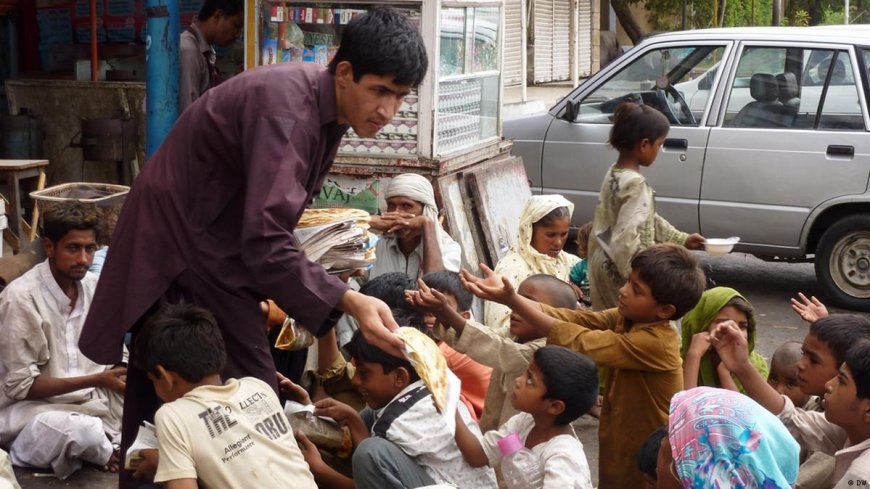Pakistan's Economic Crisis: Analyzing Challenges and Charting a Path to Financial Stability
Exploring the Factors, Impacts, and Solutions to Pakistan's Economic Turmoil
Pakistan, a nation of significant regional and global importance, is currently facing a severe economic crisis as well as political crisis. This article delves into the deep-rooted causes, far-reaching consequences, and potential solutions to Pakistan's economic turmoil. By examining factors such as fiscal mismanagement, external debt burden, political instability, and structural challenges, we aim to provide a comprehensive analysis of the situation.

Key Factors for Financial Crisis In Pakistan
-
Weak fiscal management, including budget deficits and a high debt-to-GDP ratio, has contributed to Pakistan's financial crisis.
-
Political instability, governance issues, and corruption have undermined economic growth and investor confidence in the country.
-
The energy crisis, characterized by power outages and insufficient supply, has hindered industrial production and discouraged investment.
-
High population growth and unemployment rates pose challenges to inclusive growth and exacerbate poverty and income inequality.
-
Security concerns, terrorism, and inadequate infrastructure further hinder economic development and stability in Pakistan.
Political Crises and Their Impact on the Economy
Political instability has long been associated with economic turmoil in Pakistan. The country has witnessed numerous instances where political crises have significantly impacted its economy. Government transitions, power struggles, and policy inconsistencies have shaken investor confidence, hindering economic growth, and created an uncertain business environment.
Fiscal Mismanagement: A Key Contributor to Economic Instability
Fiscal mismanagement has exacerbated Pakistan's economic crisis. Chronic fiscal deficits resulting from excessive government spending and inadequate revenue generation have put immense strain on the economy. This has led to inflationary pressures, reduced development expenditure, and limited resources for essential public services.
External Debt Burden: Challenges and Consequences
Pakistan's mounting external debt has become a pressing concern. The country's borrowing to meet its financial obligations has led to a burdensome debt burden, with implications for economic stability. The terms of loans, including high interest rates and strict conditions, have further strained Pakistan's financial resources and limited its capacity for sustainable growth.
Structural Challenges: Addressing Systemic Issues
Pakistan's economic challenges extend beyond short-term issues. Structural problems such as weak institutions, inadequate infrastructure, and a lack of skilled labor have hindered long-term economic progress. Addressing these challenges requires comprehensive reforms, including institutional strengthening, investment in education and healthcare, and infrastructure development.
Imbalanced Trade and Current Account Deficit
Pakistan's imbalanced trade and persistent current account deficit have added to its economic woes. The country's reliance on imports, coupled with a limited export base, has created trade imbalances and strained foreign currency reserves. To rectify this, Pakistan must focus on promoting exports, reducing import dependency, and enhancing trade competitiveness.
Agriculture Sector: Harnessing Potential for Economic Growth
The agriculture sector holds immense potential for Pakistan's economic growth. By modernizing farming techniques, improving irrigation systems, and ensuring sustainable agricultural practices, Pakistan can boost productivity, create employment opportunities, and enhance food security. Strategic investments in research and development can unlock the sector's potential and contribute to economic resilience.
Investment and Business Climate: Fostering Investor Confidence
Creating a conducive investment climate is crucial for economic recovery. Pakistan needs to improve ease of doing business, streamline regulations, and provide a stable political environment to attract both domestic and foreign investment. By supporting local businesses, promoting entrepreneurship, and offering incentives, Pakistan can foster investor confidence and stimulate economic growth.
Strengthening Institutions and Governance
Transparent and accountable governance is vital for Pakistan's economic stability. Strengthening institutions, combating corruption, and ensuring the rule of law are critical steps toward fostering a favorable business environment. By implementing comprehensive governance reforms, Pakistan can enhance transparency, reduce bureaucratic hurdles, and promote ethical practices.
Social Safety Nets and Poverty Alleviation
Addressing income inequality and poverty is essential for inclusive growth. Pakistan must prioritize social safety nets, healthcare initiatives, and poverty alleviation strategies. By providing access to quality education, healthcare services, and vocational training, Pakistan can empower its population, reduce poverty, and create a skilled workforce capable of driving economic progress.
International Cooperation and Support
International cooperation and support play a significant role in Pakistan's economic recovery. Engaging with international organizations, donor countries, and regional partnerships can provide financial assistance, technical expertise, and market access. Collaborative efforts can help Pakistan secure foreign aid, attract investments, and foster economic cooperation. By actively engaging with global stakeholders, Pakistan can leverage external support to strengthen its economy and achieve sustainable development goals.
Conclusion: Charting the Path to Economic Stability
In conclusion, Pakistan's economic crisis requires a multi-faceted approach to achieve long-term financial stability. Addressing political crises, implementing prudent fiscal management, reducing external debt burden, and tackling structural challenges are essential steps. Additionally, promoting a favorable business climate, investing in key sectors like agriculture, strengthening institutions and governance, and prioritizing social welfare are crucial elements of the solution.
The road to economic stability will not be easy, but with strategic planning, policy implementation, and stakeholder cooperation, Pakistan can overcome its challenges. It requires a collective effort from government entities, private sector actors, civil society, and international partners to navigate the complex economic landscape and create a brighter future for the nation.
By embracing reforms, investing in human capital, fostering innovation, and promoting sustainable development practices, Pakistan can unlock its economic potential and establish a resilient economy that benefits all its citizens.
Read Also: The End of Title 42: Changes and Expectations for Asylum Seekers
































































